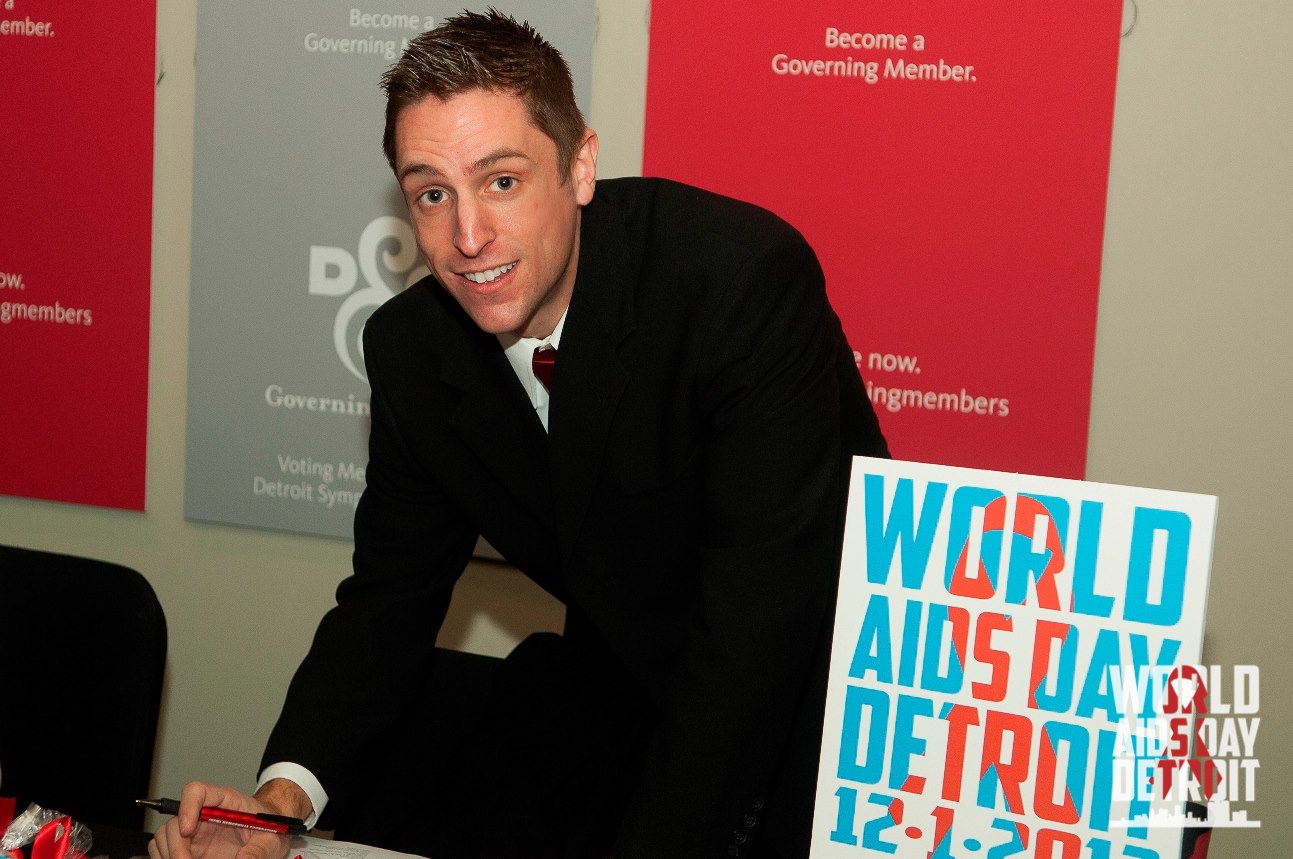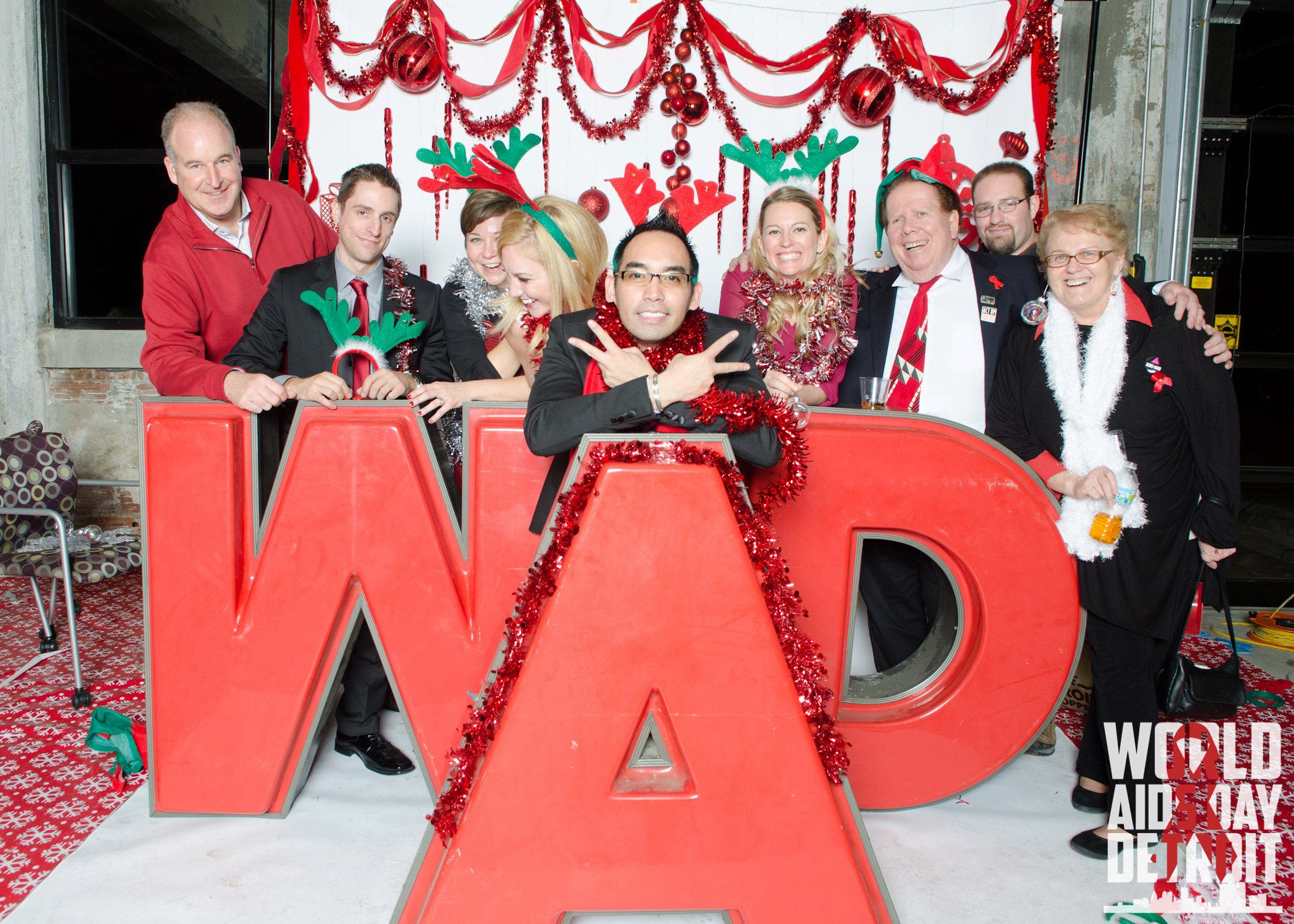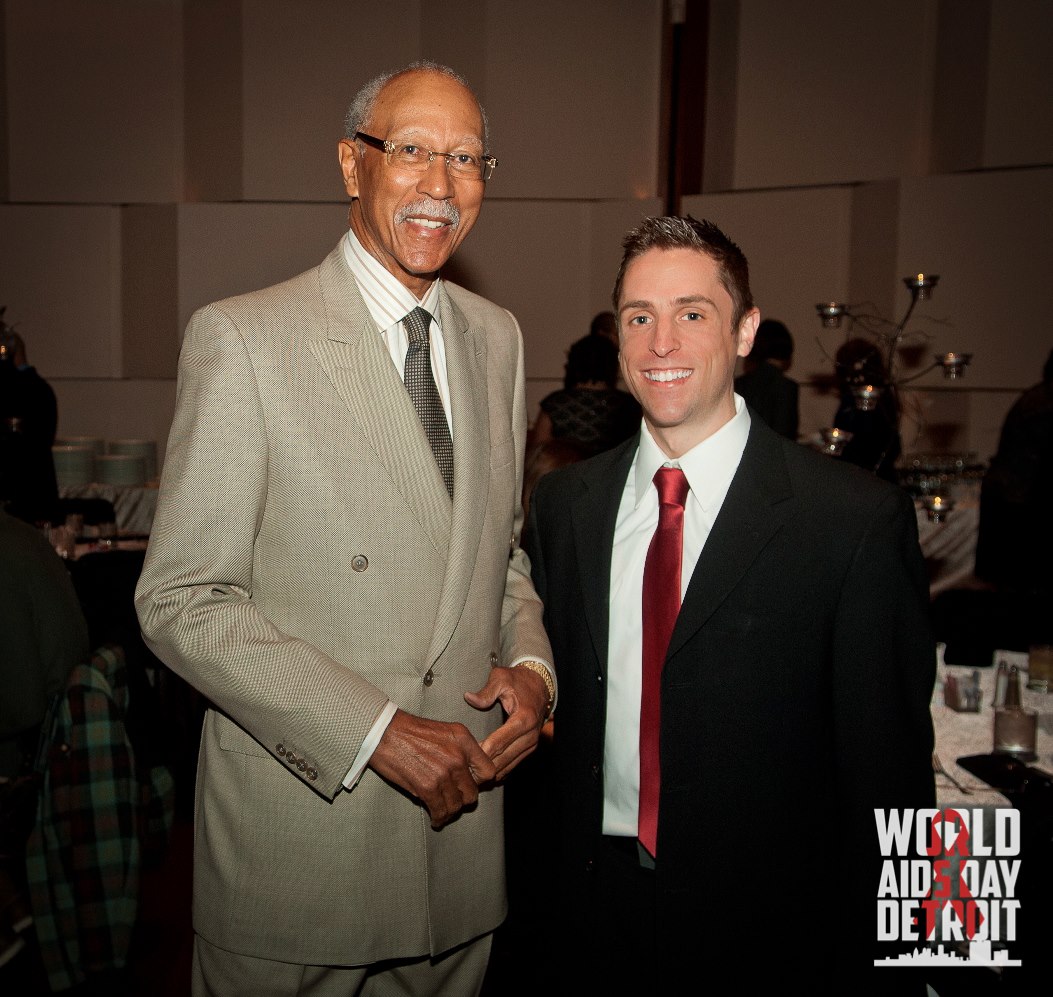 |
| Phil Kucab |
When Phil Kucab moved back to Detroit from Washington, DC, in July 2010, he didn’t expect to become an advocate for AIDS awareness. But that following December the Wayne State University School of Medicine student attended a lecture on World AIDS Day to learn more about HIV in the local community. The topic of funding and the Ryan White CARE Act came up, which prompted a panelist to ask if anyone knew who Ryan White was. Silence. Finally, a member of the audience shouted out, “He’s a boy from Nebraska with HIV.”
Bzzzz. Wrong answer.
Kucab thought, ‘Wow, here’s this next generation of doctors and they don’t know the story of Ryan White.’ As a person growing up with hemophilia, Kucab knew all about the young boy from Indiana who became a national advocate for HIV/AIDS in the ’80s after he was expelled from middle school because of his HIV status. Fearing that Ryan White’s story would be lost in the history books, he was motivated to act. “I wanted to get involved with World AIDS Day,” Kucab says, “So I started poking around to see who I could find [to help].”
Soon, he teamed up with two local advocates—Linda Alec Draper, a former university librarian who trained fellow librarians on the needs of the HIV community, and Kathleen Gerus-Darbison, a dynamic Detroit native and HIV-positive woman who started Stitches Doll Project, which preserves the stories of women living with HIV through doll-making workshops around the country. With their support, he set out to reinvent and reinvigorate AIDS awareness on December 1.
Before Kucab got involved, World AIDS Day in Detroit was mostly acknowledged by various organizations that did their own smaller events around the city. Kucab wanted to do something bigger.
So in 2011, he created World AIDS Day Detroit (WADD) in order to renew awareness of HIV/AIDS in the city. For the first time HIV and hemophilia organizations came together to educate the community. Kucab even succeeded in getting Jeanne White-Ginder to attend the day’s events and share Ryan’s story.
Kucab was honored in 2012 for his efforts in developing WADD. He was awarded with the Outstanding Community Impact Award from the Michigan Campus Compact, a non-profit coalition of college and university presidents who aim to strengthen student engagement and build personal and social responsibility as an integral part of education.
 |
| Posing for photos at the Red & White Gala |
Patrick Yankee, the director of the City of Detroit HIV/AIDS Program has been working in the HIV/AIDS field for more than 25 years. He met Kucab last summer. “Phil kept saying, ‘I am going to do this, this and this.’ I have heard a lot of ideas [from] people in the past. Usually I take a ‘wait and see’ attitude,” he says. “I will never do that again with Phil Kucab. He’s concise, he’s articulate, and he’s very focused.”
Yankee was particularly struck by the numbers and diversity of people who attended the 2012 WADD events. “It was bringing a different group of people who I think are going to be some of [the volunteer] foot soldiers going forward. We really need all the help we can get when it comes to erasing stigma and making sure that people get the services that are available. We have people who are in many ways either forgotten or rejected by their communities and their families. It’s not unique to Detroit. It is unique to urban HIV.”
WADD 2012 included a Mayor’s Breakfast, screenings of Bad Blood, a documentary film about the treatment history of people living with hemophilia, and the Detroit premiere of the Oscar-nominated documentary How to Survive a Plague hosted by CompUSA. WADD ended with a climactic “Red & White Gala” attended by hundreds. More than 100 volunteers, including high school and medical students, helped to make the WADD events a success while proudly sporting T-shirts that read: “World AIDS Day Detroit December 1, 2012 – Getting to Zero.”
Kucab sees Mayor Dave Bing’s remarks—and his mere presence—at the 2012 Mayor’s Breakfast as proof that WADD is working. “In 2011, we were in earnest discussions with the Clinton Foundation to have President Clinton attend, and yet we couldn’t get our own mayor to attend. This year he attended and said ‘I hear you, I don’t know much about this, I need to learn more, and you have my support.’”
 |
| Mayor Dave Bing and Phil Kucab |
“We weren’t just one HIV organization,” Kucab says of WADD organizers. “We came together as a community—critical mass of people—and that got [the mayor’s] attention.” It’s getting the public’s attention too, he says, especially “people that may not otherwise have an interest in seeing an AIDS-free generation or even know there are people trying to do that in Detroit.
“World AIDS Day Detroit is not a panacea,” Kucab acknowledges, “but it is a way for us as a community to start to build a future together. To start engaging people who can do the work without being so dependent on the dollars. I would love [for us] to start a pilot program here in Detroit, and get a couple of other cities and people like myself to do things that are unique to their own area [in order to get] their own political, business and other leaders involved.”
Clearly Kucab thinks big. He’s already planning ahead for WADD 2013, and this time, just maybe he’ll be able to get President Clinton to Detroit. Either way, Kucab has a vision for the future.
“Ryan White’s message was twofold,” he says. “It was a message of education, and it was a message of compassion. People need to get educated and they need to have compassion for everyone with HIV, no matter how they got it and even if they are different from you. With WADD I tried to distill [the message of compassion] down to creating an AIDS-free generation. If we start with that, there is no one who can argue with that.”
And no one can argue that Phil Kucab is making a difference is Detroit.






Comments
Comments